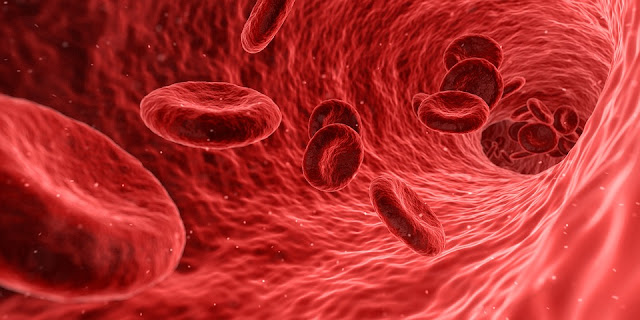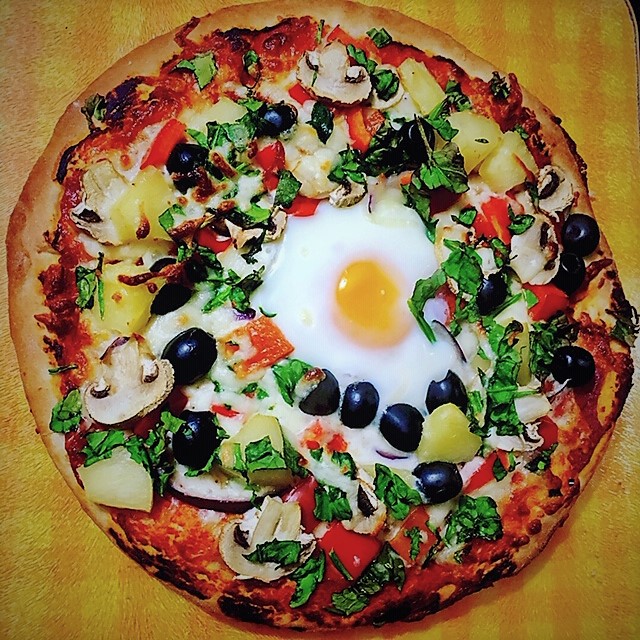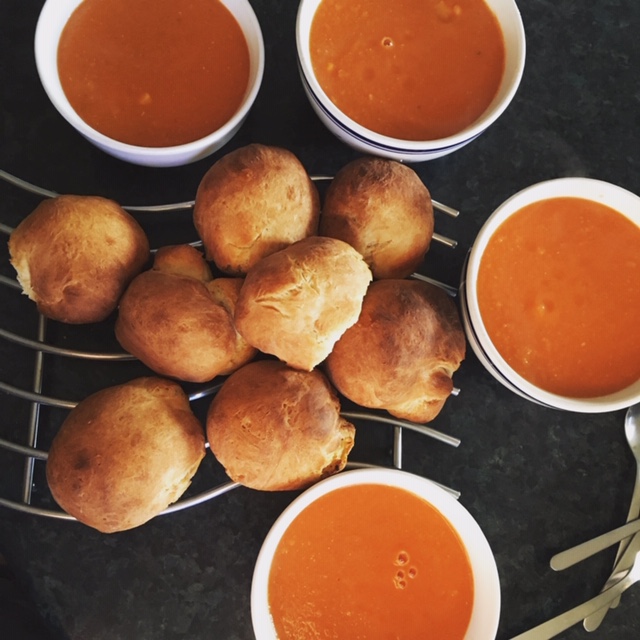Recently I‘ve been diagnosed again with anaemia. Iron deficiency is one of the most common and widespread nutritional disorders in the world and it is thought that 4 million people in the UK may be living with iron deficiency anaemia. As well as taking my prescribed medication, daily ferrous fumarate, my GPs advice has also been to increase the amount of iron-rich foods in my diet. So if you are wondering which foods are high in iron for a vegetarian, what a vegetarian can eat for anaemia and how a vegetarian can get enough iron read on.
What Food to Eat When You Are Anaemic and Vegetarian
Typical advice from family and friends when you say you are anaemic is often that you must eat more red meat and liver. However as a vegetarian, these food aren’t suitable so I did some research and created my own meal plan, high in iron and also other foods that help the body absorb plant-based iron.
What is anaemia?
Iron deficiency anaemia is a condition where a lack of iron in the body leads to a reduction in the number of red blood cells. Iron is used to produce red blood cells, which help store and carry oxygen in the blood. If you have fewer red blood cells than is normal, your organs and tissues won't get as much oxygen as they usually would.
What are the symptoms of anaemia?
According to the NHS, the most common symptoms of iron deficiency anaemia include:
- tiredness and lack of energy (lethargy)
- shortness of breath
- noticeable heartbeats (heart palpitations)
- a pale complexion
And less common symptoms include:
- headache
- hearing sounds that come from inside the body, rather than from an outside source (tinnitus)
- an altered sense of taste
- feeling itchy
- a sore or abnormally smooth tongue
- hair loss
- a desire to eat non-food items, such as ice, paper or clay (pica)
- difficulty swallowing (dysphagia)
- painful open sores (ulcers) on the corners of your mouth
- spoon-shaped nails
How is anaemia treated?
Treatment for iron deficiency anaemia usually involves taking iron supplements and changing your diet to increase your iron levels, as well as treating the underlying cause if applicable. Taking iron supplements can boost the low levels of iron in your body. This is usually effective, and I’ve been told the condition rarely causes long-term problems. I’ve been on iron tablets for two months and my latest blood test shows my iron levels are improving and I’m no longer ‘anaemic’.
I’ve also been told that increasing the amount of iron in my diet is recommended. I don’t eat meat so red meat is out as a source however the following foods are identified by the NHS as good sources of iron:
- dark-green leafy vegetables, such as watercress and curly kale
- iron-fortified cereals or bread
- brown rice
- pulses and beans
- nuts and seeds
- meat, fish and tofu
- eggs
- dried fruit, such as dried apricots, prunes and raisins
But I also discovered that it's not just what you eat but also what you eat it with that’s important. In particular, food and drink containing vitamin C are important as vitamin C helps your body absorb iron. But consuming large amounts of some foods and drinks can make it harder for your body to absorb iron.
These include:
- tea and coffee
- calcium – found in dairy products, such as milk
- wholegrain cereals – although whole grains are a good source of iron themselves, they contain phytic acid, which can stop your body absorbing iron from other foods and pills
An Iron-Rich Diet for Vegetarians
Do you feel tired, irritable, suffering from insomnia and also possibly hair loss? I was but now I’m taking prescribed medication as well as trying to improve my diet as much as possible so here’s my iron rich food plan. If you think you may be anaemic please do seek medical advice.
Monday
- Breakfast: Ready Brek with seeds and cranberry with orange juice
- Lunch: Poached egg. avocado and rocket on toast
- Evening meal: Falafel, tomato salsa and brown rice
Tuesday
- Breakfast: Ready Brek with seeds and cranberry with orange juice
- Lunch: Hummus and vegetable dips
- Evening Meal: 5 bean chilli with lentils and brown rice
Wednesday
- Breakfast: Ready Brek with seeds and cranberry with orange juice
- Lunch: Lentil Dahl with multigrain bread
- Evening meal: Tofu Taco
Thursday
- Breakfast: Ready Brek with seeds and cranberry with orange juice
- Lunch: Quinoa wrap with omelette, watercress and spinach
- Evening meal: Chickpea and spinach curry with brown rice
Friday
- Breakfast: Ready Brek with seeds and cranberry with orange juice
- Lunch: Peanut butter sandwiches on whole grain
- Evening Meal: Pizza topped with egg, spinach, olives and vegetables
Saturday
- Breakfast: Eggs Florentine with half a grapefruit
- Lunch: Lentil and tomato soup with homemade bread
- Evening meal: Chickpea & carrot burgers and sweet potato fries
Sunday
- Breakfast: Omelette with spinach and mushrooms with half a grapefruit
- Lunch: Lentil and Nut roast
- Tea: Boiled Egg and soldiers
Iron Rich Recipes & Tips for Vegetarians
I’ve also crowdsourced iron-rich vegetarian food recipes and eating tips from soups to snacks and even chocolate!
Food ideas:
Choclette from Tin & Thyme suggests Mushroom Pate with Walnuts (vegan)
Camilla from Fab Food 4 All suggests releasing the iron in spinach by eating it with vitamin C rich food in her quick spinach soup and Quick Poached Egg & Garlic Spinach Bagel
Lousie from Pink Pear Bear has 7 iron-rich vegetarian meal ideas.
Cardiff Mummy suggests broccoli, spinach and pea soup and super healthy spinach and red lentil dahl
Eva from Captain Bobcat recommends lentils in her one pot super meal
There is also a lovely recipe for a chickpea and kale salad with blood orange and pistachio from Mandy from Cook Veggielicious
Top Tips
Laura from Five Little Doves says “I’ve been anaemic my whole life and when it’s particularly bad I made a huge batch of broccoli and Stilton soup in the soup maker. It’s so easy to make and packed with Iron!”
Kate from Counting to Ten says “I remember all the midwives kept telling me to eat dried apricots. I hadn’t heard about them being high iron before that.”
Sophie from Yorkshire Families says “I love making Dall with turmeric and fresh ginger added. I then bake kale with spices to make it crispy and sprinkle on top. Then serve with brown rice."
Vlogger Pip recommends "high-quality dark chocolate as it has lots of iron in."
Laura from Autumns Mummy Blog says “Drink orange juice with every meal to help you to absorb iron. Plant-based iron is harder to absorb so this will help.”
Amy from All About a Mummy says “The issue isn’t so much about iron-rich foods - it’s about how much our body absorbs. Plant sources are packed with iron but they only provide non-heme iron which our bodies find it really hard to absorb the iron from. We can only absorb 2-20% of the heme iron present in these foods - so we need to eat a hell of a lot of it to come close to getting the RDA. Plus if you drink tea or coffee after your meal you’ll further decrease absorption rates as tannins negatively affect it. Same with milk as calcium inhibits iron absorption (hence why not great to take iron at breakfast time).”
Do you have any other tips for keeping iron levels up?
Deb x
To be kept up to date with events, new openings, recipes, things to do and child-friendly places to take the kids, plus giveaways then follow My Boys Club on Facebook, Instagram or Twitter too.



























3 Comments
I've always struggled a bit with iron, even when I wasn't vegetarian, so this is really useful. Thank you.
ReplyDeleteThanks so much for including my salad. Such a useful and informative post.
ReplyDeleteThanks enjoyed reading the information I am not vegetarian, but do suffer with anaemia. Will add some of your suggestions to my daily eating.
ReplyDelete